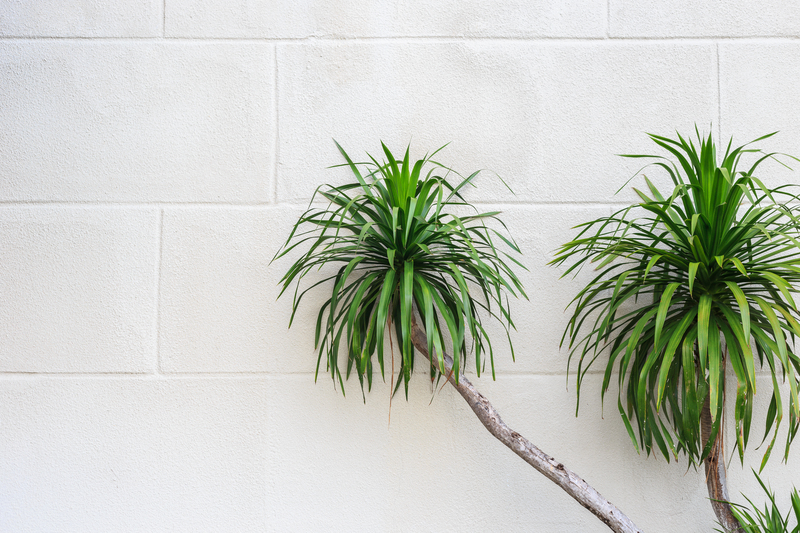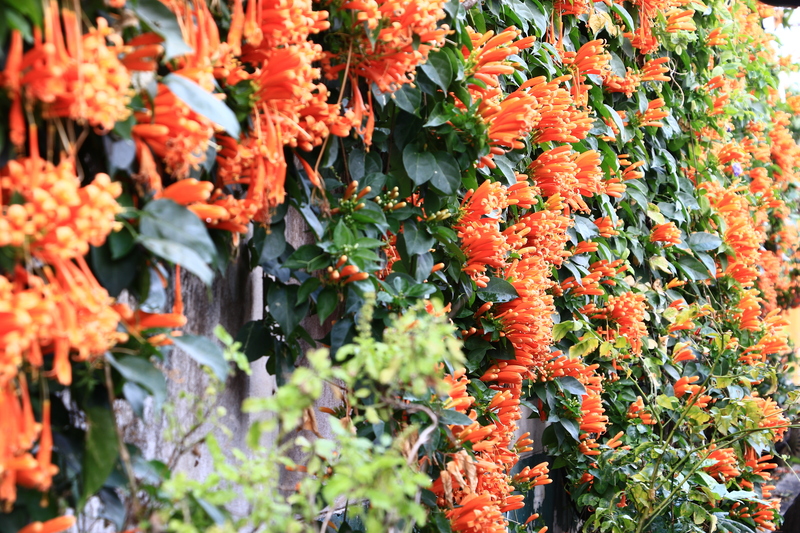Prepare to Plant: 9 Essential Gardening Tips for Newbies
Posted on 28/06/2025
Prepare to Plant: 9 Essential Gardening Tips for Newbies
Digging into gardening for the first time? Welcome! With a little know-how and dedication, your thumb can turn as green as you like. Women and men from all backgrounds and abilities discover joy and tranquility in nurturing plants. In this comprehensive guide, we unveil 9 essential gardening tips for beginners (with clever variations) to prepare you to plant and grow a thriving garden, whether you have a yard, patio, or window box.
Getting Ready for Your First Garden Adventure
Gardening is a rewarding blend of science, art, and hands-on enjoyment. For gardening newbies, the abundance of advice can feel overwhelming. Don't worry--every expert was once a beginner. This article arms you with practical, beginner gardening tips that will help you lay the foundation for a bountiful, healthy, and beautiful garden.
By the end of this SEO-optimized article, you will be equipped with actionable knowledge, helpful tricks, and motivational insight to start planting with confidence. Let's get your hands dirty!

1. Know Your Garden: Understanding Sun, Shade, and Soil
Assess Sunlight and Shade
Each plant has specific light requirements. Monitor your chosen garden location across the entire day. Does it bask in full sun (6+ hours of sunlight), partial shade, or does it lie mostly in the shadows? Mark these areas--where the sun hits in the morning, afternoon, and evening.
Test and Improve Your Soil Quality
The foundation of every great garden is healthy soil. Conduct a simple soil test: scoop a small sample and observe its color, texture, and smell. Loamy, dark, and crumbly soil is ideal. Clay soils feel sticky; sandy soils feel grainy. Home test kits offer insight into pH and nutrient levels.
- Enrich poor soil by adding compost, aged manure, or store-bought organic material.
- Aim for a neutral pH (around 6.5) for most veggies and flowers.
- Good soil prep is crucial--with fertile soil, your plants will thrive!
2. Select Suitable Plants for Your Climate and Lifestyle
Don't pick plants solely for looks. Your climate zone, growing season length, and the time you have to care for your garden are vital considerations.
- Check your USDA Hardiness Zone (Find it here) to choose cold- or heat-tolerant varieties.
- Choose low-maintenance, resilient beginner plants--such as marigolds, zinnias, lettuce, radishes, or sunflowers for easy success.
- If you're short on space, consider container gardening or vertical solutions.
Read plant labels or seed packets carefully. Match them not only to your zone, but also to the amount of light, water, and space you can provide.
3. Start Small and Map Out Your Planting Area
Ambition is great, but smaller gardens are easier to manage for beginners. Begin with a modest plot or a few containers, ensuring you don't bite off more than you can chew.
- Draw a simple garden plan. Place taller plants at the back (or center for round beds)
- Leave space for paths, and allow room for plants to grow--avoid overcrowding!
- Group plants with similar needs together: this makes watering and feeding easier.
Remember: expansion is easy later. Master your first space, and you'll naturally crave more room to grow.
4. Equip Yourself with Essential Gardening Tools
Every new gardener should have these basics:
- Trowel for digging and transplanting
- Hand fork for loosening soil
- Watering can or hose, ideally with gentle spray
- Pruners or scissors for trimming
- Gardening gloves to protect your hands
Keep tools clean and sharp. Well-maintained tools work more efficiently and help prevent disease spread from plant to plant.
5. Learn How (and When) to Water Your Plants Properly
One of the most common mistakes new gardeners make is over- or under-watering. The secret? Water deeply and less frequently to encourage healthy root growth.
- Water in the morning for best absorption and to avoid fungal issues.
- Feel the soil with your finger: if the top inch is dry, it's time to water.
- Avoid getting foliage wet--focus on the soil and roots.
- Use mulch to retain moisture and reduce watering needs.
6. Feed Your Garden: The Magic of Mulch and Compost
Healthy soil grows healthy plants. There's no better way to build your garden soil than mulching and composting.
- Crumble compost into beds to boost nutrients, improve structure, and enhance moisture retention.
- Add mulch (like shredded leaves, wood chips, or straw) around plants to:
- Reduce weeds
- Conserve water
- Regulate soil temperature
- Start your own compost heap or bin for kitchen scraps and garden waste. It's nature's recycling!
Tip: Always keep mulch a little away from stems to prevent rot.
7. Battle Weeds and Pests the Smart Way
Unwanted guests are a part of every gardener's life. Monitor your garden regularly for weeds and pests; deal with them early, and they won't take over.
- Pull weeds weekly when the soil is moist for easier removal.
- Try natural pest remedies like insecticidal soap or companion planting (e.g. marigolds deter aphids).
- Encourage beneficial insects--like ladybugs--to patrol your patch.
- If chemical controls are necessary, always follow safety instructions and use sparingly.
Early action prevents bigger problems. Never underestimate the benefits of vigilance and a little elbow grease!
8. Fertilize and Train Your Plants for Better Growth
Fertilizer Fundamentals
Plants, like people, need balanced diets. Organic or slow-release commercial fertilizers provide essential nutrients for robust growth. Learn the N-P-K ratio: that's Nitrogen (for leaves), Phosphorus (for roots), and Potassium (for flowers and fruit).
- Follow package directions--avoid overfeeding which can harm plants.
- Feed at key times: early spring for leafy growth, early summer for flowers/fruit.
Stake, Trellis, and Support Growing Plants
- Provide supports for climbers like peas, beans, or tomatoes using stakes, cages, or trellises.
- Training plants improves sunlight access and makes harvesting easier.
9. Learn, Experiment, and Savor Every Season
No two gardening years are identical. Weather, pests, and plant growth sometimes surprise even veteran gardeners. Keep a garden journal or notes on what worked, what failed, and your wishes for the future.
- Read books, join local clubs, or follow gardening blogs for fresh tips.
- Talk with experienced gardeners--they love to share!
- Don't be afraid of failure. Each plant lost is a lesson learned.
Above all: enjoy the journey! Gardening teaches patience, connection, and wonder. Celebrate every sprout, blossom, and harvest.
Bonus: Top Gardening Mistakes Newbies Should Avoid
- Neglecting soil preparation: Skipping this step leads to weak plants.
- Overwatering or underwatering: Plants drown or dry out. Find the right balance.
- Ignoring plant labels: Sun/shade/water needs matter!
- Planting too early or late: Respect your local last frost date.
- Spacing plants too closely: Plants need room to grow their best.
Being aware of these pitfalls helps you cultivate green-thumb confidence.

Get Ready to Grow: Your New Gardener Success Awaits!
With these 9 essential gardening tips for beginners, you can confidently prepare to plant, nurture, and enjoy your own slice of paradise. Armed with the basics of soil, sun, plant selection, care, and learning, your journey as a beginning gardener will be filled with discovery and delight.
Start small, stay curious, connect with nature, and above all, savor the process. With practice and patience, your garden will reward you for years to come.
Quick Reference: 9 Gardening Tips for Beginners
- Understand your garden's light and soil
- Choose the right plants for your zone and schedule
- Start small, plan your space
- Use quality tools and keep them in shape
- Water wisely and mulch to retain moisture
- Nourish the soil with compost
- Weed and control pests early
- Fertilize and train plants for sturdy growth
- Keep learning and enjoy every step
Happy gardening--and remember, every master gardener started with a single, hopeful seed!

